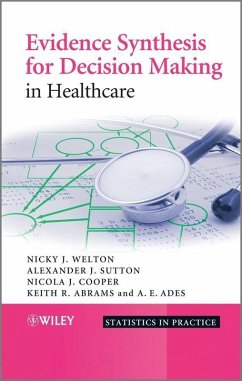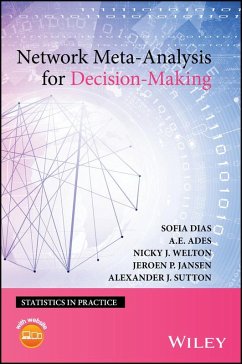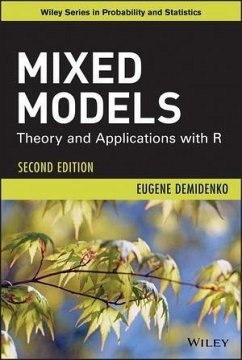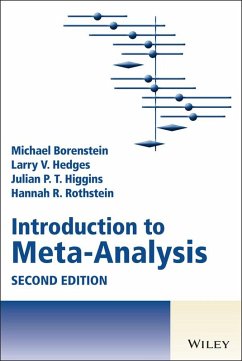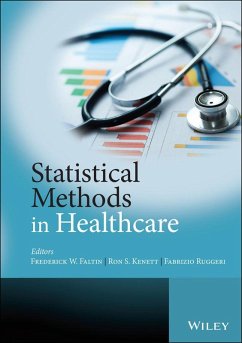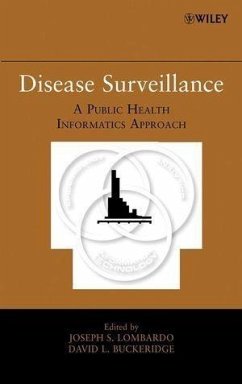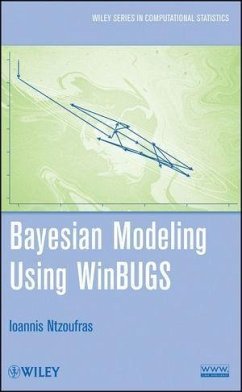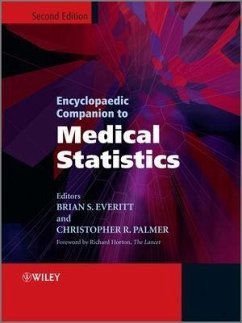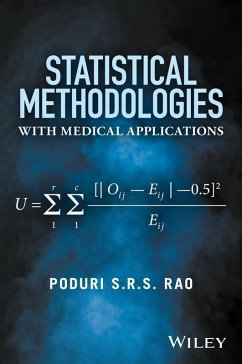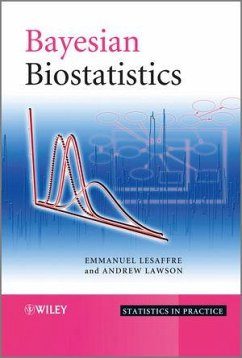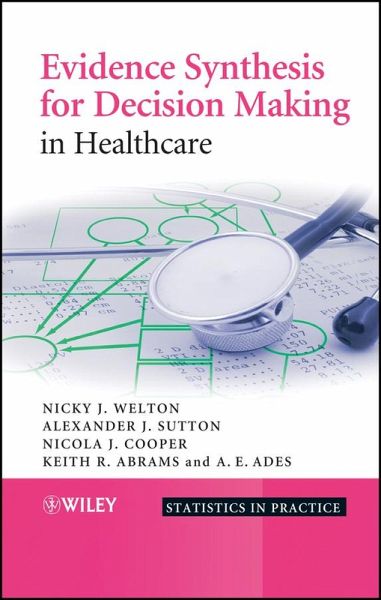
Evidence Synthesis for Decision Making in Healthcare (eBook, ePUB)
Versandkostenfrei!
Sofort per Download lieferbar
61,99 €
inkl. MwSt.
Weitere Ausgaben:

PAYBACK Punkte
0 °P sammeln!
In the evaluation of healthcare, rigorous methods of quantitative assessment are necessary to establish interventions that are both effective and cost-effective. Usually a single study will not fully address these issues and it is desirable to synthesize evidence from multiple sources. This book aims to provide a practical guide to evidence synthesis for the purpose of decision making, starting with a simple single parameter model, where all studies estimate the same quantity (pairwise meta-analysis) and progressing to more complex multi-parameter structures (including meta-regression, mixed t...
In the evaluation of healthcare, rigorous methods of quantitative assessment are necessary to establish interventions that are both effective and cost-effective. Usually a single study will not fully address these issues and it is desirable to synthesize evidence from multiple sources. This book aims to provide a practical guide to evidence synthesis for the purpose of decision making, starting with a simple single parameter model, where all studies estimate the same quantity (pairwise meta-analysis) and progressing to more complex multi-parameter structures (including meta-regression, mixed treatment comparisons, Markov models of disease progression, and epidemiology models). A comprehensive, coherent framework is adopted and estimated using Bayesian methods. Key features: * A coherent approach to evidence synthesis from multiple sources. * Focus is given to Bayesian methods for evidence synthesis that can be integrated within cost-effectiveness analyses in a probabilistic framework using Markov Chain Monte Carlo simulation. * Provides methods to statistically combine evidence from a range of evidence structures. * Emphasizes the importance of model critique and checking for evidence consistency. * Presents numerous worked examples, exercises and solutions drawn from a variety of medical disciplines throughout the book. * WinBUGS code is provided for all examples. Evidence Synthesis for Decision Making in Healthcare is intended for health economists, decision modelers, statisticians and others involved in evidence synthesis, health technology assessment, and economic evaluation of health technologies.
Dieser Download kann aus rechtlichen Gründen nur mit Rechnungsadresse in D ausgeliefert werden.



